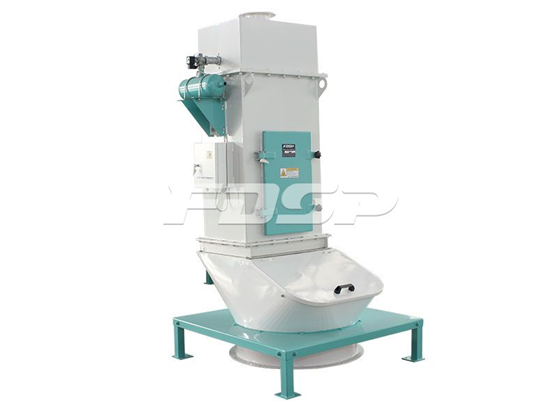There are frequent reports of dust explosions in feed companies, and the control of dust in feed companies directly affects production safety. Let's discuss with you many applications and strategies on dust control issues.
First of all, there are no more than two factors that cause dust in the workshop: First, the design and installation of facilities and equipment are unreasonable; Second, the lack of equipment maintenance in the feed factory makes the equipment with better performance not play the role of dust removal.
1) Unreasonable design
Dust removal equipment includes dust collectors, dust hoods, air ducts, etc. The unreasonable design is manifested as: First, insufficient air volume. In order to save equipment costs, some companies use low-energy dust-catching equipment. The second is that the air duct is too long, there are too many elbows, and the air duct size is not matched properly. As a result, the ideal dust removal effect cannot be obtained at each dust removal port. The third is the unreasonable setting of the dust hood. The dust suction cover of the feeding port and the packaging port is too small, the dust suction surface cannot meet the required requirements, and the height and position are not installed properly, which directly affects the dust suction effect.
2) Unreasonable installation
One is the lack of a frustrating outlet in the batching bin. Second, the soft connection of the batching scale is too tight. The third is the poor quality of production equipment, some conveying equipment has poor sealing, and serious powder leakage; dust removal equipment often fails; the pulse dust collector does not have a cleaning door, and more than 20 fixed dart wires need to be loosened to replace the cloth bag. Normal maintenance cannot be implemented at all.

In order to effectively control the spread of dust, the dust removal point must be selected in the place where dust is most likely to be generated:
Feeding port: It is easy to produce dust during the feeding process. One pulse dust collector can be installed at each feeding port and directly placed at the feeding port. In this way, it can be used as a dust suction for feeding materials, and also as a suction air for the base part of the feeding hoist, so as to realize the effect of feeding and dust removal at the same time.
Crusher: Usually the discharge port of the crusher is connected with a pulse dust collector (or brake + pulse), which can simultaneously realize the suction and dust removal problems of the crusher, which is beneficial to improve the efficiency of the crusher.
Small material adding port: Small material is not easy to participate in automatic batching because of the small amount, so it needs to be added separately during the production process. This dust is characterized by fine particle size, easy to raise dust, and dust material can be used. A small material adding machine (feeding port and small pulse dust removal integrated machine) should be used, which can not only realize the addition of small materials, but also solve the dust leakage and recycling. Effectively ensure the quality of feed products.
Premix packaging: the dust is large, the dust material can be used, a separate cloth bag is required for pulse dust removal, and the dust cover is made according to the site conditions.
Bunker group: Large and medium-sized feed mills have relatively high silos in various silos, and the materials are prone to dust when they enter the silos, so negative pressure facilities should be set up for treatment. For a group of combined silos, the rising dust can be collected through one or two dust collection points through the connection at the upper part of the silo. The general approach is to set one point in the warehouse to be crushed, two points in the batching warehouse, one point in the pelletizing warehouse, and one point in the finished product warehouse, which are combined into their respective dust removal air nets. The suction volume can be determined according to the size of the silo, and then the pulse dust collector is configured. When the air vent method is adopted, the filter cloth bag should be checked for damage and adhesion in time.
Other places: In terms of raw material cleaning, mixing machine air return holes, granular finished product packaging, etc., suction points should be designed according to needs and incorporated into combined air nets.
Liangyou suggested that when building or renovating feed mills, feed companies should first consider selecting equipment companies with high technical level and good product quality to help design and install dust removal equipment, and avoid greed for low-priced and poorly crafted equipment.

